News
Cranberries can reduce UTIs
22 Jun 2016Leading experts on infectious disease and urinary tract infections (UTIs) gathered recently in London to discuss the findings from a study that is said to have conclusively shown that cranberries can reduce symptomatic UTIs.

Leading experts on infectious disease and urinary tract infections (UTIs) gathered recently in London to discuss the alarming state of antibiotic resistance and present findings from a study that is said to have conclusively shown that cranberries can be a nutritional approach to reducing symptomatic UTIs, and as a result, may be a useful strategy to decrease worldwide use of antibiotics.
According to the study, funded by Ocean Spray and recently published by the American Journal of Clinical Nutrition, drinking an 8-ounce (240 ml) glass of cranberry juice a day reduces symptomatic UTIs by nearly 40% in women with recurrent UTIs – reducing the burden of UTIs and reducing the antibiotic use associated with treating recurrent UTIs.“Currently the primary approach to reducing symptomatic events of UTI is the use of chronic antibiotics for suppression, an approach associated with side effects and development of antibiotic resistance. This study shows that consuming one 8-ounce (240 ml) glass of cranberry juice a day reduces the number of times women suffer from repeat episodes of symptomatic UTI and avoids chronic suppressive antibiotics,” said Dr. Kalpana Gupta, infectious disease specialist and Professor of Medicine at Boston University’s School of Medicine.An author on the study and panellist at the session, Gupta believes that cranberries can help to reduce the worldwide use of antibiotics and significantly improve the quality of life for women who suffer from recurrent UTI symptoms.The 24-week study of 373 women, conducted by researchers at Boston University, Biofortis Innovation Services (a division of Merieux Nutrisciences) and 18 clinical sites throughout the US and France, is said to be the largest clinical trial of its kind examining the effects of cranberry juice consumption on UTIs. This trial adds to more than 50 years of cranberry research and allegedly supports the cranberry’s ability to support urinary tract health and reduce symptomatic UTIs among chronic UTI sufferers.Researchers set out to find whether recurrent (or repeat) UTI sufferers could be protected from repeat infections by drinking cranberry juice. Participants were all healthy women, with an average age of 40, who had experienced at least two UTIs within the past year. During the study, participants were randomly chosen to drink a daily dose of eight ounces (240 ml) of either cranberry juice or a “placebo” beverage without cranberries.The rate of UTIs decreased significantly among the cranberry drinkers, with just 39 diagnoses during the six-month study compared with 67 in the placebo group.Compared to some other studies, this trial is claimed to have had greater statistical power to detect differences than others due to its larger sample, use of incidence density to account for the tendency of clinical UTIs to cluster in time within an individual, a high average level of compliance (98%), and a comparatively large percentage of subjects in each group completing the treatment period (86%).Women with symptomatic UTIs experience all the discomforts of a UTI, such as a strong, persistent urge to urinate or a burning sensation when urinating, but may or may not test positive for a bacterial infection upon a consult with a physician. In many instances, women are treated with antibiotics for symptom relief whether bacteria is found or not. According to Gupta, the key to avoiding the situation altogether may very well lay with the cranberry.“The key to cranberry’s benefit is consuming a glass daily to help avoid the infection altogether,” said Gupta. “Most people wait to drink cranberry juice until they have a UTI, but once the symptoms start they’ll likely need a course of antibiotics.”UTIs are among the most common bacterial infections in women worldwide. Up to 60% of all women are said to suffer a UTI in their lifetime, and up to 25% experience a recurrence within six months. Some 150 million UTIs occur annually worldwide, according to the American Urological Association, resulting in $6 billion in annual health care costs.Antibiotics are usually the first line of treatment for urinary tract infections, and women who have frequent UTIs may be prescribed low-dose antibiotics. Unfortunately, chronic overuse of these drugs has increased antibiotic resistance at an alarming rate globally. So much in fact, that the World Health Organization (WHO) cites a 50% resistance rate to one of the most widely used antibiotics to treat UTIs.Cranberries are said to contain a unique combination of compounds including Type-A PACs (or proanthocyanidins) that prevent bacteria from sticking and causing infection. In addition to PACs, new studies have revealed a new class of compounds, xyloglucan oligosaccharides, which have similar anti-bacterial properties against E. coli as PACs. These unique compounds can be found in a variety of products, including cranberry juice cocktail, 100% cranberry juice, light cranberry juice, dried cranberries and cranberry extract; however most of the research surrounding cranberries and UTIs has been conducted using juice.Related news
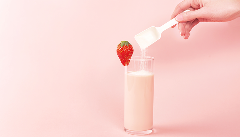
BelliWelli secures funding for retail and team expansion
2 Jan 2025
US fibre brand BelliWelli has confirmed a further $10 million series B investment from Invus. The investment will help the company further expand its presence in the US.
Read more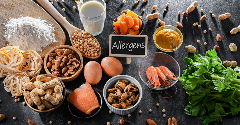
EU calls to harmonise allergen labelling increase
1 Jan 2025
Allergy awareness efforts focus on implementing a European reference laboratory and collaboration to standardise labels and support allergen identification.
Read more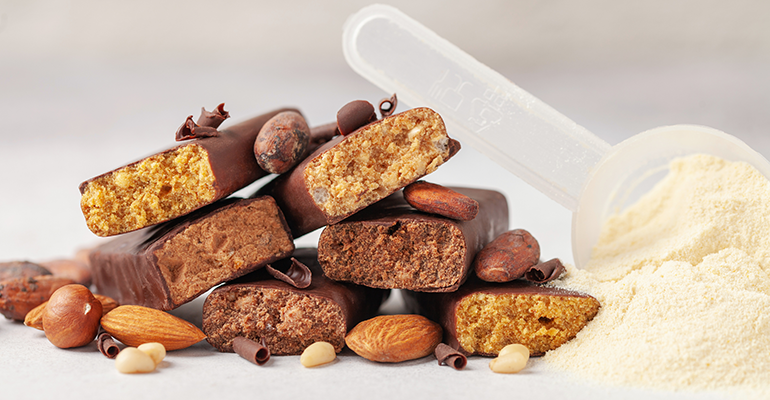
Japanese study points to risk of excessive nutritional fortification
31 Dec 2024
Fortified foods and supplements are mainly beneficial but there is a small risk of over-supplementation – particularly for vitamin B6, a Japanese study has concluded.
Read more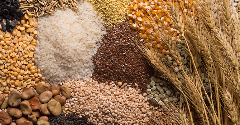
Is it time for a global definition of whole grain?
30 Dec 2024
Amid a lack of harmonisation, the European Food Information Council (EUFIC) is calling for a global definition of the term whole grain to end consumer confusion.
Read more
EFSA publishes new food additive research on non-nutritive sweetener saccharine
27 Dec 2024
The European Food Safety Authority (EFSA) has released new recommendations on saccharin and its sodium, potassium and calcium salts (E 954) as food additives.
Read more
FDA delivers workshop on nutrition regulation and science
19 Dec 2024
The FDA hosted a nutrition regulatory science workshop exploring ultra-processed foods and emerging technologies, aiming to spotlight the relationship between nutrition, science, and evidence-based policies.
Read more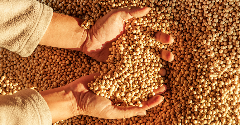
How US soy exports shape Southeast Asian food
19 Dec 2024
As Southeast Asia and the US mark 20 years of trade, trends in soy, especially plant-based preferences, signal increasing demand for high-quality protein sources.
Read more
Hormel Foods sells its Health Labs brands to Lyons Magnus
17 Dec 2024
Hormel Foods has confirmed the sale of its Hormel Health Labs division to Lyons Magnus, creating Lyons Health Labs. The strategic move aims to better position Lyons Magnus as a leading player in the growing US market for nutritional and health products...
Read more
Nestlé releases products for pregnancy and fertility
13 Dec 2024
Building on in-house research, existing scientific evidence, and consumer demands, the global food company has developed products designed for mothers and babies.
Read more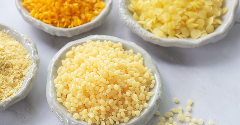
Consumer awareness and transparency key factors in shift to natural-based emulsifiers
11 Dec 2024
The demand for natural-based emulsifiers in the food industry is surging as health concerns over the use of synthetic emulsifiers have consumers looking for alternatives.
Read more